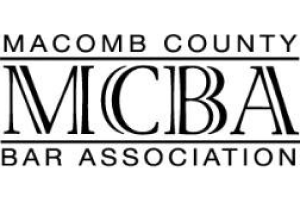Estate Planning
Living Trust? Revocable Trust? Irrevocable Trust? Will? Living Will? Power of Attorney? Medical Power of Attorney? Confused? All of these documents serve to create an effective estate plan. Clients are often confused by which document does what and which document or documents are right for them. Often clients blindly completely “do-it-yourself” estate planning kits without proper legal knowledge leading to unintended consequences. Estate planning is not a “one-size fits all” practice. Careful skill is required to determine proper estate planning that fits your family goals consistent with your assets and estate.
Estate planning is not only about providing an effective “roadmap” for the proper distribution of your assets, it is also about avoiding probate. Clients almost always think of ways to avoid probate of their estate while ignoring the reality of probate of themselves in the event they become disabled. A proper estate plan not only addresses monetary issues and proper division of a person’s estate, it also provides the ability to make decisions for someone in the event that they become disabled.
A Last Will and Testament does not avoid probate. A “Will” simply provides the probate court with instructions as to how to divide and distribute your estate. Further, a Will is only effective if it is admitted to probate, often it does not control the disposition of assets owned jointly or assets that name beneficiaries. Relying on a Will to administer your estate can be problematic if you do not fully understand estate planning. However, understanding how a Will can be an effective estate planning tool consistent with your goals can be a highly effective estate planning method.
Trusts have evolved over the years. Changes to Michigan law have changed the use of trusts as a method of estate planning for the extremely wealthy, to a method of planning for those concerned with maintaining control. Trusts can maintain control of the distribution of your estate over time to help protect your loved ones from unwise spending and poor decisions. Trusts can effectively control the distribution of your estate and assets according to your goals. An effective trust is properly designed and funded. A Trust can only control the assets that are “funded” to it. Care must be taken to not only properly design a trust but also to make sure that a trust is properly funded with the assets that it is to distribute. An improperly designed or funded trust will not accomplish your estate planning goals.
Despite the popularity of trusts, not everyone needs a trust. Working together with an attorney skilled in estate planning methods, practical planning procedures can be used to not only avoid probate, but also maintain your goals while balancing control. Proper use of “ladybird deeds”, beneficiary designations and asset titling techniques can yield the same estate planning results as trusts and Wills. The attorneys of Serafini, Michalowski, Derkacz & Associates can help you decide which estate planning method is best for you. Through proper planning you can make sure that your estate avoids probate while maintaining control and avoid unnecessary waste or “spend down” in the event it is necessary to later begin “longterm care planning”.











